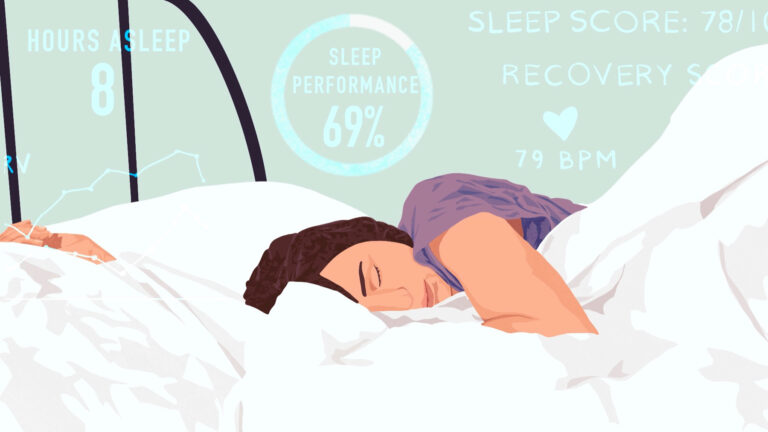Digital health’s investment boom stalled. Maybe that’s a good thing.
Highs and Lows
After two years of red-hot growth, US digital health funding cooled in Q3.
How we got here: From 2014–2017, total annual funding ranged between $4.5B to $6B. In 2018 and 2019, that number ticked over $8B. Then, the pandemic happened.
Confronting COVID and healthcare’s shortcomings, in 2020, consumers embraced new tech—from virtual visits to wearables—as operators and investors seized the moment.
That year, companies in the space raked in $14.7B, 70% more than the sector’s previous high.
Doubling down, investors pumped $29.2B into digital health startups last year as companies pursued growth, innovation, and the public markets.
The latest: According to a new Rock Health report, digital health funding flatlined last quarter.
- In Q3, companies raised $2.2B, the lowest quarterly total since $2.1B in Q4’19.
- Through three quarters, startups secured $12.6B, well below the record set in 2021.
Driven by macroeconomic uncertainty, investors have shifted to writing smaller checks at earlier stages, while Series C+ deals have all but disappeared.
Part of the problem, exits are down 50% compared to historical norms, with public listings reaching record lows — this year has seen 59 public listings, compared with 303 in 2021 and 145 in 2020.
As Pitchbook’s Q3 venture report details, if these trends continue, 2022’s total exit deal value will fall below $100B for the first time since 2016.
Feeling the squeeze. Across early-stage deals, valuations and check sizes are shrinking as investors ratchet up expectations beyond the promise of growth.
Impacting later-stage companies more severely, the capital pullback has forced operators to reorient priorities in pursuit of profitability. Reining in spending, a long list of digital health companies have undergone layoffs while reevaluating their business models.
Among those cutting staff are a number of unicorn startups, many of which recently raised hundreds of millions in funding — namely Ro, Truepill, Calibrate, Noom, WHOOP, and Calm.
Best of Times?
Despite the uncertainty, renowned investor Bill Gurley thinks this might be the best time to start a company. In a recent interview, the general partner at Benchmark said:
“The truth is that if you’re going to build something from scratch, this might be as good a time as you’ve had in a decade.”
From access to talent to the rise of hybrid work, Gurley believes startups are well-positioned to succeed, adding the macro environment is less likely to hinder early progress.
Along these lines, Social Capital CEO and venture investor Chamath Palihapitiya said that, although there are more constraints, downturns are “where all the real money is made.”
The same sentiment is shared among digital health investors, like General Catalyst’s Hemant Taneja, who said:
“I think this is one of the best times to be starting a company… We are big believers that downturns lead to great opportunities.”
Now, however, investors are adamant that founders must build responsibly, demonstrating greater discipline and strong economics in order to thrive.
No Going Back
Less of an indictment of digital health’s potential, the funding drought speaks to just how unusual the past few years have been.
Still, as the shakeout continues, a few things have become increasingly clear.
For one thing, there’s an abundance of capital, with US venture firms raising a record $150B in 2022 and $290B in dry powder to deploy as the markets stabilize, per Pitchbook.
And two, in an effort to overhaul a broken healthcare system, the digital transformation will only accelerate.
From increasing access and improving outcomes to combating chronic diseases, the mental health crisis, and widespread inequities, the demand for ambitious founders creating innovative solutions isn’t going anywhere.
Hit us up. We invest in mission-driven startups across health, fitness, and wellness. We’re actively writing pre-seed/seed checks, so if you’re raising capital, get in touch here.
📊 Wearable-Free
Slowly but surely, innovation is unlocking access to personal health data.
On the Fitt Insider Podcast: Spren CEO Jason Moore discusses his company’s wearable-free digital biomarker platform.
We also cover: hyper-personalization, raising $11M in new funding, and Spren’s pivot from DTC product to B2B software.
Listen to today’s episode here
🏠 Trading Spaces
Once bitter rivals, boutique studios and big-box gyms are finding common ground.
The latest: New York Sports Clubs (NYSC), a chain of health clubs based in NYC, acquired Fhitting Room, an omnichannel boutique strength and HIIT studio.
Previously owned by Town Sports International, the NYSC brand was bought out of bankruptcy in 2020. Operating clubs in Boston, New York, and DC, the gym chain is attempting to engineer a turnaround — starting with Fhitting Room.
A 10-year-old concept known for high-intensity, kettlebell-centered workouts, Fhitting Room will continue to operate its on-demand digital platform and (soon to be) three physical locations.
The plan. But, as Fhitting Room founder (and now NYSC CMO) Kari Saitowitz put it, Fhitting Room will also play a central role in NYSC’s “glow up,” reimagining the embattled club’s brand, spaces, and services for high performance and social fitness. 20 renovated clubs are planned to reopen by year’s end.
Joining forces. As consumer behavior shifts between IRL and at-home, brick-and-mortar operators are adapting.
- Xponential Fitness partnered with LA Fitness, agreeing to install 350 studios within its gyms in the next five years.
- World Gym redesigned its business around two new build-outs, a strength-only gym and a premium gym with omnichannel boutique classes.
- Former cycling studio Swerve pivoted into a SaaS business, becoming a boutique production house for big-box gyms, including NYSC.
Takeaway: While there are bull cases for both boutiques and big-boxes, the proven synergy of both (and competition for top talent) is giving way to new partnerships, acquisitions, and fitness bundles.
Share this headline
🔁 Bridging the Gap
Moving the business beyond mindfulness, Calm is pushing further into healthcare.
What’s happening: Launching a new app early next year, Calm Health aims to address the full spectrum of mental health needs with condition-specific programs, medication tracking, and more.
Available to health insurers, care providers, and employers, the service hopes to “bridge the gap” between mental and physical health care.
For context: Founded in 2012, Calm helped move meditation into the mainstream. Aspiring to be “Nike of the Mind,” the company was valued at more than $2B in a 2020 funding round.
But, as the consumer mindfulness market became increasingly competitive, the app maker began looking for new growth opportunities.
- Earlier this year, Calm acquired Ripple Health Group, a healthcare tech startup building digital tools for caregivers.
- In July, Ripple CEO David Ko became Calm’s chief executive, replacing co-founders Michael Acton Smith and Alex Tew.
But, in August, the company laid off 20% of its staff as usage fell from pandemic highs.
Sound familiar? Pursuing a similar path, Headspace merged with telehealth company Ginger in a $3B deal last year. More recently, it acquired mental wellness app Shine.
Punchline: Aligning with the shift toward integrated well-being, Calm said mental and physical health are deeply intertwined. As consumers continue to buy in, this trend will reshape industries, from fitness to healthcare.
Share this headline
☝️ All-in-One
More consumers are seeking out holistic wellness, and boutique studios are taking notice.
The latest: Ambition, a multi-modality boutique fitness concept created by [solidcore] founder Anne Mahlum, secured $5M to support launch and expansion.
Through strength, conditioning, athletic-style yoga, and recovery classes—plus regular in-studio educational and mental fitness programming—Ambition’s offering aims to deliver a more holistic experience.
Scaling up. Mahlum previously raised more than $70M to scale [solidcore], reaching more than 75 locations before turning the reins over to Bryan Myers.
Maintaining a controlling interest in her previous venture while serving as executive chairwomen, Mahlum has set her sights on an unfulfilled gap in the market:
“We feel there is a need in the market right now for a new premium brand to offer multiple fitness modalities under one roof and to provide sophisticated programming and educational tools on how to be your most optimized self to achieve all your goals.”
Coming soon. Four NYC studio locations are under development, with the first expected to open in February 2023.
Share this headline
📰 News & Notes
- Aviron unveils size-inclusive rower.
- Walmart gets into clinical research.
- LIT Method debuts portable strength system.
- Charlotte’s Web becomes official CBD of the MLB.
- LA Fitness adds Les Mills+ omnichannel membership.
- Fitt Jobs: career opportunities in the health & fitness industry.
- Tom Brady buys pickleball team with tennis star Kim Clijsters.
- Startup Q&A: Any Distance CEO Luke Beard on social+ fitness.
- Exos launches digital and in-person coaching for employee burnout.
💰 Money Moves
- Ambition, a holistic boutique studio concept by [solidcore] founder Anne Mahlum, raised $5M ahead of launch.
- Digital health and diagnostics company Viome added $67M in a Series C round led by Bold Capital Group.
- Will Ventures closed a $150M fund to invest in sports and sports-adjacent startups.
- Boutique franchise Mayweather Boxing + Fitness acquired KickHouse Fitness, a kickboxing franchise with 26 locations.
- North Castle Partners closed an undisclosed continuation fund for CR Fitness, a top Crunch Fitness franchisee, in a transaction led by TPG.
On the Pod: North Castle Partners managing director Jon Canarick - Feel, a UK-based DTC supplements platform, raised £10M ($11.4M) in a Series A round.
- Pureboost, a clean-label energy drink, raised over $2M in crowdfunding.
More from Fitt Insider: Liquid Gold - The Healing Company, an ecommerce platform for holistic medicine, acquired plant-based superfoods brand Your Super.
- FitBudd, an Indian SaaS solution for digital personal training, secured $3.4M in a seed round.
- FOLX Health, a digital health platform created for the LGBTQIA+ community, landed $30M in a Series B round led by 7wireVentures.
- Web3 move-to-earn platform Gritti grabbed $1.7M in a seed round.
More from Fitt Insider: Sweat to Save - International reseller C+A Global acquired Saris Group, maker of bike trainers and cycling products, at bankruptcy auction.
- UK-based Upkeep, a booking app for cosmetic dermatology services, raised $2M in seed funding.
More from Fitt Insider: Booking the Beauty Boom
Today’s newsletter was brought to you by Anthony Vennare, Joe Vennare, and Ryan Deer.






